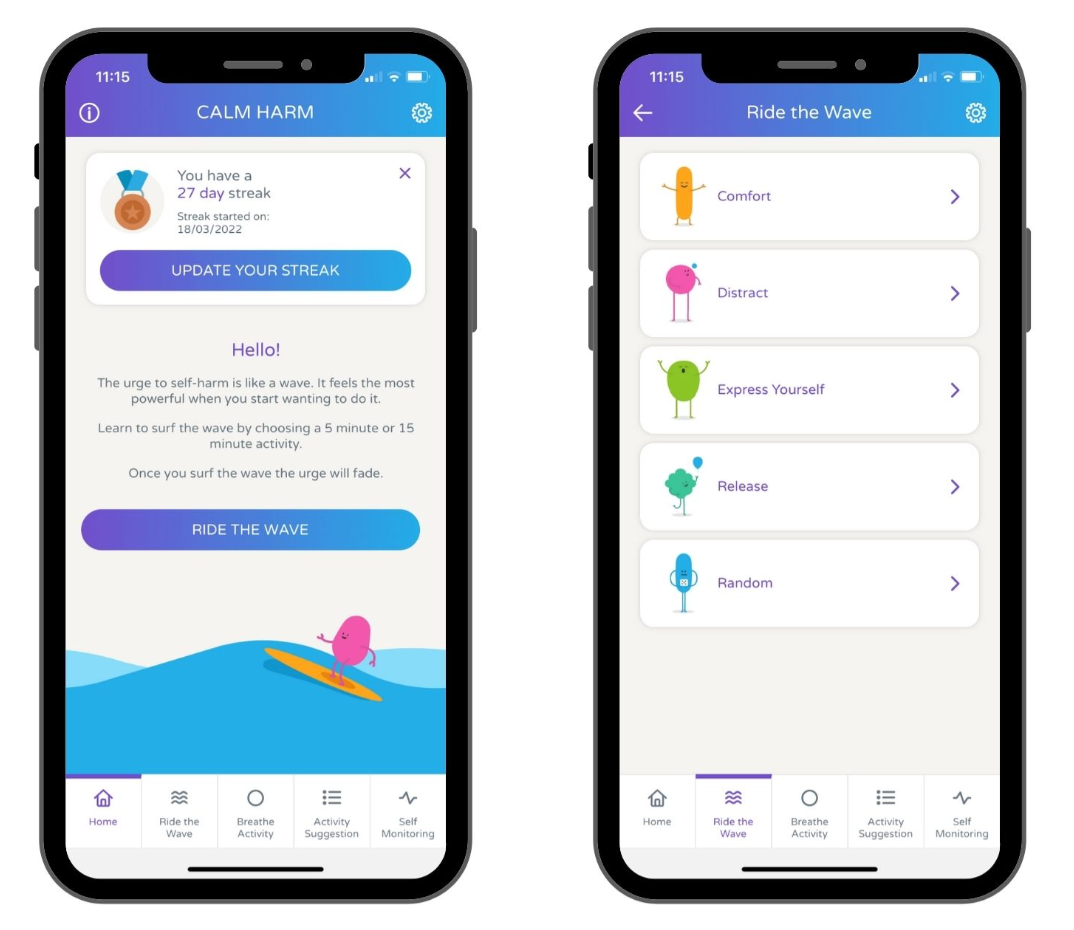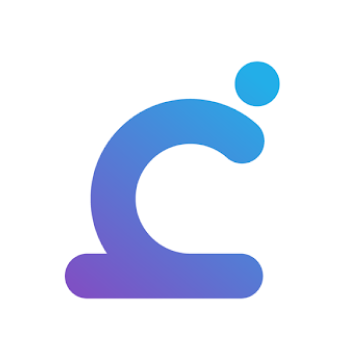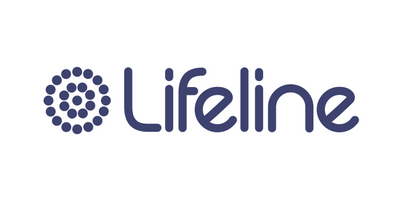What it is
Calm Harm is an app designed to help you resist the urge to self-harm.
Using strategies from Dialectical Behaviour Therapy (DBT), Calm Harm can help you learn how to identify and manage your emotions and impulses and track underlying triggers to harmful urges.
With this app, you can access various tools and techniques, such as breathing exercises, mindfulness strategies, self-soothing activities, and distraction techniques that can help you manage and resist the urge to self-harm.

Who it's for
Calm Harm is recommended for young people 13 and above. If a younger child would like to use it, it is recommended that this is done under the guidance of an adult.
Please note that the Calm Harm app is not a substitute for assessment and intervention by a mental health professional. It is recommended that a GP be consulted in the first instance.
If you self-harm with suicidal intent, please talk to a responsible adult and see a health professional urgently.
How to access it
You can download Calm Harm via the:
Note: Calm Harm currently requires a one-time payment of $1.99 for those residing in Australia.








